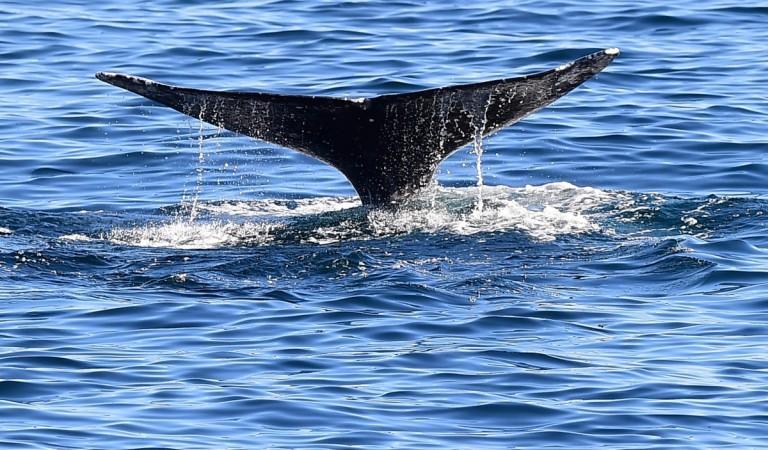
The Egyptian Ministry of Environment has reported that a rare and endangered blue whale was spotted in the Gulf of Aqaba in the Red Sea for the first time.
The aquatic giant was first spotted by a fisherman off the coast of Eilat, Israel on Tuesday (May 29). "It was seen by a fisherman around 11:45 A.M. [Tuesday], and he rushed to report on it. At first, they thought it was a large-finned whale that had already been seen in our region," said Oz Goffman, the director of the Israel Marine Mammal Research and Assistance Center, as reported by haaretz.com.
The authority has also revealed that the whale belongs to a subspecies known as the pygmy blue whale and is nearly 98 feet long. The animal's movements are also being tracked by monitoring teams in the South Sinai and the Red Sea.
Pygmy blue whales have a larger head, shorter tail, and shorter baleen plates. These animals, like other whales, are solitary creatures and generally travel alone and can live up to 70 – 90 years.
However, this incident has baffled the scientists. They argue that though blue whales are spread throughout most of the world's oceans, they avoid shallower seas, especially those that are largely enclosed by land. Moreover, the waters of the Red Sea are also warmer compared to the usual regions where the aquatic mammal is found.
Some scientists also believe that the whale has lost its way during the migration season, which generally happens towards the poles during the summer as the water is cooler and the food is plenty there.
According to a 2017 report by the Convention on the Conservation of Migratory Species of Wild Animals (CMS), while only nine species of whales and dolphins are known to occur in the region, large whales are rarely seen. smithsonianmag.com reported that one of the authors of the report Giuseppe Notarbartolo di Sciara said that the Red Sea is not hospitable to great whales as these waters cannot provide that amount of food required for these giants need to survive.

















